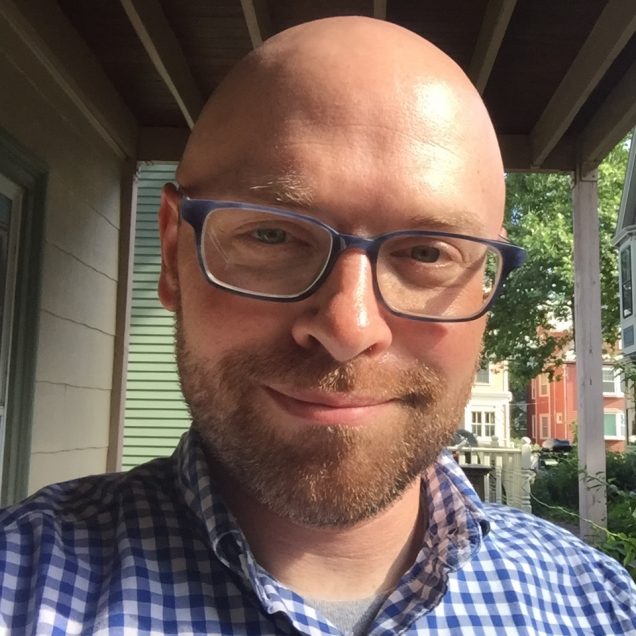Meet Sean Case, PhD Candidate in the American & New England Studies Program
 Sean Case (he/him/his) is a PhD candidate in the American & New England Studies Program and a historian of U.S. foreign policy with the main interest of bridging the military history and diplomatic history subfields. His dissertation “To Balance the World: The Development of the U.S. International Interest, 1935 – 1963” engages with historical actors from a wide variety of professions, framing them as “intellectuals,” and their adoption of balance of power as the United States’ international interest. This past summer, Case interned at Partners in Health (PIH) as part of the Summer Graduate Internships in the Social Sciences program. This internship was designed to provide insights into the role of PIH as a non-governmental organization (NGO) within the international system, particularly as it advances health care as a fundamental human right. It was also set up to illustrate how PIH operates as a local institution of dedicated community health workers across multiple national sites. Learn more about Case in an exclusive interview with CISS communications intern Lily Belisle.
Sean Case (he/him/his) is a PhD candidate in the American & New England Studies Program and a historian of U.S. foreign policy with the main interest of bridging the military history and diplomatic history subfields. His dissertation “To Balance the World: The Development of the U.S. International Interest, 1935 – 1963” engages with historical actors from a wide variety of professions, framing them as “intellectuals,” and their adoption of balance of power as the United States’ international interest. This past summer, Case interned at Partners in Health (PIH) as part of the Summer Graduate Internships in the Social Sciences program. This internship was designed to provide insights into the role of PIH as a non-governmental organization (NGO) within the international system, particularly as it advances health care as a fundamental human right. It was also set up to illustrate how PIH operates as a local institution of dedicated community health workers across multiple national sites. Learn more about Case in an exclusive interview with CISS communications intern Lily Belisle.
Why does social science matter to you?
Social science still employs the best tools for understanding human interactions. In my dissertation work, I analyze intellectual networks through social theory. It enables me to understand my historical actors as they were: people deeply concerned with their world and fearful of the consequences of a third world war. If history can be applied to current events, then it is through those qualitative aspects of social science that it finds purchase in the contemporary.
What did your summer internship entail? What were you involved in on a daily basis?
I served as the project manager for the community health landscape analysis for the Partners in Health (PIH) Strategic Information Systems team. My responsibilities entailed crafting a questionnaire for interviews with community health leadership at PIH sites in Mexico, Liberia, Sierra Leone, Haiti, and Malawi. I then conducted those interviews which enabled me to survey the common and distinct priorities and challenges across sites. Community health workers perform necessary and urgent care for the minds and bodies of their communities. The interviews ultimately granted me a deeper and more holistic understanding of PIH’s mission to provide a preferential option for the poor in health care.
How do you see this internship impacting your professional development/ academic career moving forward?
My academic work so often focuses on the theoretical or the abstract. Such is the consequence of working with ideas. My internship, however, brought the insights only offered by practical applications, particularly as it pertains to the quality and quantity of human life. It made me realize how my interests increasingly steer me toward policy relevance. Whether that leads to an academic career or an academic-adjacent one remains to be seen. I am grateful beyond words for how this internship introduced me to international care. I have so much more to learn, and I look forward to learning more about it.
Learn more about the 2022 Summer Graduate Internships in the Social Sciences program here!